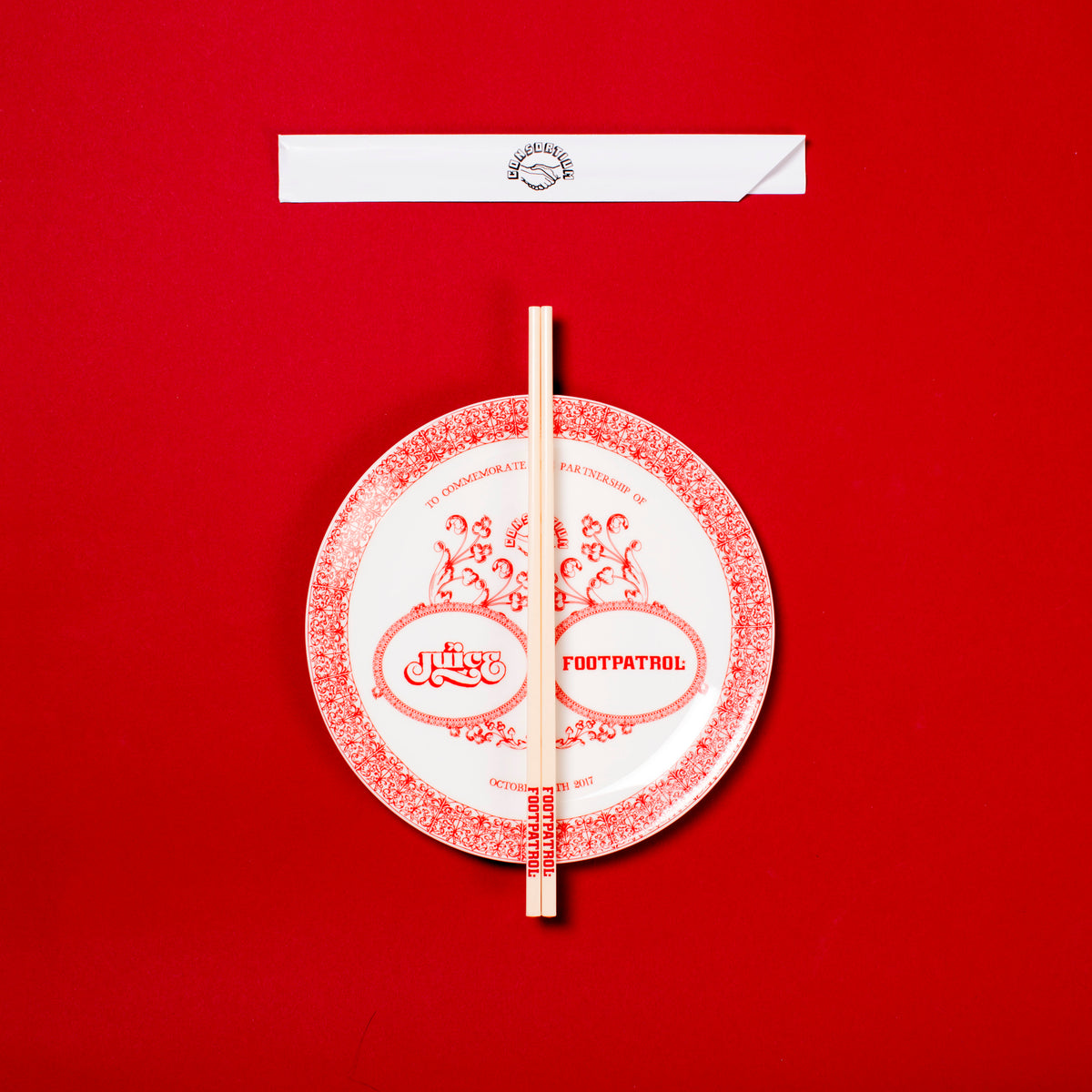
Hong Kong in London: Cultures Boiled down to its Souvenirs
Hong Kong and London - two of the biggest cities in the world, with histories as intertwined as it gets. Only 20 years ago was Hong Kong returned to China after almost a century as a British colony. Now, both cities are widely considered to be flagships for its respective regions - in addition to being financial and cultural hubs. So it’s no surprise that both places are hot tourist destinations attracting millions of visitors each year. Despite the 9,606 km of land and sea in between, London’s Foot Patrol and Hong Kong’s JUICE have come together to champion both cultures through something tourists know best - souvenirs.

“souvenir” itself literally means “a memory”
Sure, souvenirs can be lame. Do you really need another keychain? Probably not. But these little mementos signify something bigger than just “another keychain,” They’re knickknacks that hold memories of a certain time or place, and more often than not, a foreign place. Well, the word “souvenir” itself literally means “a memory” in French, so these kitschy items are physical pieces that prove you (or a friend) has been somewhere cool.
Foot Patrol x JUICE’s adidas Consortium Sneaker Exchange collaboration celebrates these mementos, bringing together Hong Kong and London’s most recognizable cultural symbols on a range of items you’d typically find at Ladies’ Market or Berwick Street. From Hong Kong’s Bauhinia Orchid to the Union Jack, here’s a crash course on some of these cultural icons.
Hong Kong’s most recognizable symbol is, obviously, its flag. The white-on-red emblem of this Asian metropolis depicts a stylized Hong Kong orchid (officially known as the Bauhinia blakeana). It was officially hoisted on July 1, 1997 when Hong Kong was returned to Chinese rule. The flag bears the exact same red as the People’s Republic of China flag, signifying reunion.

Of course, red itself is a particularly auspicious color in Chinese culture, symbolising good luck and happiness. If you think of anything associated to Chinese culture, there’s a good chance you’re thinking of something red. Chinese culture is one that is so deeply-rooted in superstitions that many of its most recognizable symbols have connotations related to luck and prosperity versus roots in history.
Another auspicious symbol is the cloud. Drawn with swirls in a ton of different colors, admittedly, they don’t look like typical clouds. But the Monkey King’s choice of transportation is symbolic of luck because they bring necessary rain for crops.
And then among the clouds are dragons, legendary creatures that play a huge part in Chinese folklore and myths. They control water, rainfall, floods and are generally considered very powerful. It doesn’t hurt that they look cool, especially when embroidered on the side panel of a pair of sneakers.
Aside from all the symbolism found in this collection, there’s also a stellar range of porcelain-inspired plates. Porcelain was invented in China (hence its nickname, fine china) and made its way across the world due to its durability. While Chinese porcelain is known for its translucent white base and blue decoration, porcelain made its impact in England as well because it was the perfect material for teatime cups and pots.

Chinese Embroidery, Chinese Porcelain
cultural icons have not only transcended the test of time, but they’ve become representations of its respective regions
On the other hand, we have London. While most of the UK’s most recognizable symbols come from its streets (like the double decker buses or street signs), you can’t avoid the Union Jack while shopping for decidedly English souvenirs. Adopted way back in 1801, the red, white and blue flag is the official flag of the United Kingdom. Its design features the red St. George’s (England) cross, the white diagonal St. Andrew’s (Scotland) cross and red diagonal St. Patrick’s (Ireland) cross.

These cultural icons have not only transcended the test of time, but they’ve become representations of its respective regions. What else would you bring back to remember a certain place you’ve traveled to if not a souvenir, branded with some of the most salient symbols out there? London and Hong Kong have a tangled history, but both cities attract unparalleled numbers of tourists -- all of whom are certainly picking up souvenirs. What are you going to choose?
Words by Helena Yeung


